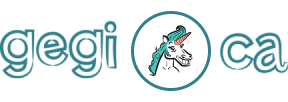For Teachers & Administrators
Catholic District School Board of Eastern Ontario
1. I think a student at my school is experiencing gender expression or gender identity discrimination. What do I do?
- Learn more about gender expression and gender identity discrimination
- Review your school board’s Bullying Prevention and Intervention policy addresses gender expression and gender identity discrimination.
Yes, Bullying Prevention and Intervention, and Harassment include protections on the basis of gender identity and gender expression.
However, some of your board’s general policies have not been updated to include gender identity and gender expression as protected grounds under the Ontario Human Rights Code. Such as: School Operations Code of Conduct Progressive Discipline, Staff Response to Inappropriate Student Behaviour, Suspension/Expulsion Programs, and A Collaborative Response for Children and Families in Crisis.
3. What can I do if the washrooms in my school are not accessible for transgender and/or gender non-conforming students?
Your board doesn’t yet have information about gender and washroom access in its policies. Share this document Gegi’s Tips for Gender-Accessible School Washrooms with your school administration. It was prepared by our research team, which includes experts in gender, education and law, and reflects the current state of human rights law and research-informed best practices.
4. I am experiencing gender expression and/or gender identity discrimination as an employee. Does my school board have a staff-facing policy that addresses this?
Yes, your board has policies and procedures relevant to staff such as Harassment, and Bullying Prevention and Intervention which include protections on the basis of gender identity and gender expression.
5. What are some local places I can go for support and information about gender expression and gender identity?
Here are resources in your area designed to support you and/or your family.
- Seaway Valley Community Health Centre
First Thursday of every month, 5:00 – 7:00 p.m.
Phone: 613-936-0306
Website: https://seawayvalleychc.ca/
- TransFamily Kingston (TFAM)
Website: https://www.facebook.com/groups/TFamYGK/
Website: http://www.transfamilykingston.com
Email: transfamilykingston@gmail.com
- Education on Queer Issues Pro (EQuIP)
Phone: 613-533-3154
Website: https://www.facebook.com/equipqueens
Email: equip@ams.queensu.ca
- Kingston Pride
Website: https://www.facebook.com/PrideinKingston/
- Parents and Friends of Lesbians and Gays, Kingston (PFLAG)
Phone: 613-217-9817
Website: https://www.facebook.com/pflagkingston/
Email: kingstonon@pflagcanada.ca
Closer to Ottawa:
- LGBTTQ+ Around the Rainbow
Phone: 613-725-3601 Ext 105
Email: lmontoy@familyservicesottawa.org
Website: https://familyservicesottawa.org/children-youth-and-families/around-the-rainbow/
- Safety
Website: https://www.saeftyottawa.ca
- Gender Mosaic
Website: http://gendermosaic.com/
- FSO Support Group for Parents and Caregivers of Gender Creative, Trams, Transgender Children, Youth or Young Adults
Phone: 613-725-3601 Ext 105
Email: lmontroy@familyservicesottawa.org
- Trans Health Clinic
Phone: 613-233-4443 Ext 2245
Email: Transhealth@centretownchc.org
- Canadian Centre for Gender & Sexual Diversity
Phone: 613-400-1875
Email: support@ccgsd-ccdgs.org
Website: https://ccgsd-ccdgs.org/
- Ottawa Senior Pride Network / Réseau Fierté des aîné(e)s d’Ottawa
Phone: 613-233-4443 Ext 2194
Email: ospn.rfao@gmail.com
Website: http://ospn-rfao.ca/en/home-page/
Youth focused resources:
- Brockville Public Library – LGBTQ & Allied Youth Drop-In
Phone: 613-342-3936
Email: gsabrockville@gmail.com
- KTown Youth Pride
Website: https://www.kingstonpride.ca/youth-council/
Contact: Amber Lockwood
Email: Amber@kingstonpride.ca
- HARS & HARS FUSE Youth Group
Phone: 613-545-3698
Website: http://hars.ca/
Website: https://www.facebook.com/harskingston/
Contact: Jackie
Email: whai@kingston.net (youth group) and hars@kingston.net (general)
Unions that represent Ontario’s teachers and school workers take different public stances on supporting transgender and/or gender non-conforming members. Overall, we note that much of the relevant (and public) content about these issues on unions’ websites and in their policies is geared toward members’ professional development, not toward members’ own experiences of gender expression and/or gender identity discrimination. If you are active in one of these unions, and have information that Gegi.ca’s visitors can use to access support from their union in this area, please get in touch!
Association des enseignantes et des enseignants franco-ontariens (AEFO)
AEFO includes l’identité de genre (gender identity) and l’expression de genre (gender expression) alongside other protected grounds in the ‘Ce que nous faisons’ section of its website as follows: “La FEO croit fermement que tous les membres de la population canadienne ont droit à un traitement égal, sans discrimination fondée sur l’âge, l’ascendance, la couleur, la race, la citoyenneté, l’origine ethnique, le lieu d’origine, la croyance, l’incapacité, la situation familiale, la situation matrimoniale (y compris la situation de célibataire), le sexe (y compris la grossesse et l’allaitement), l’identité de genre, l’expression de genre et l’orientation sexuelle – dans une société à laquelle chaque personne peut participer pleinement et librement, et où elle peut exercer ses droits. La FEO croit également que nous devons toutes et tous nous opposer vigoureusement à quelque discrimination à l’endroit de quiconque.”
Canadian Union of Public Employees (CUPE)
CUPE has been emphasizing equality with their employers and in bargaining since the 1970s. In 2000, CUPE activists were instrumental in having gender identity protection added to the Toronto District School Board’s human rights policy (the first public school board in Canada to have this protection added). They have also forwarded gender expression and gender identity rights through bargaining. CUPE has created resources for members, and openly shares its commitment to supporting transgender and/or gender non-conforming workers.
Elementary Teachers’ Federation of Ontario (ETFO)
ETFO was a leader in challenging the Ontario government’s repeal of the 2015 Health and Physical Education curriculum. While that curriculum was not reinstated, “the court’s decision clearly states that educators can use their professional judgement and teach beyond the 1998 curriculum to ensure that all Ontario students learn in a school environment that: is inclusive and accepting; protects gender identity and gender expression; and includes curriculum relevant to the health and safety of children in 2019.”
ETFO has begun the process of created a transgender policy that includes support for the union’s own employees, and has created a variety of supportive resources for staff in their role as teachers. These are as follows:
- Suggested resources for including gender diversity in the classroom and supporting “Gender Independent Children” and Trans Youth/Adults.
- The Body Image Project (K-8) is curriculum package focused on cultivation of positive body image and self-esteem for students. Gender and Sexual Diversity two-page primer.
Ontario English Catholic Teachers’ Association (OECTA)
OECTA includes the following statement on the Where We Stand section of its website: “We are striving to make our communities and schools as safe and welcoming as possible for students, teachers, and staff who identify as LGBTQ. We have previously hosted the Reach Every Student – Know Their Story conference, about engaging and serving marginalized LGBTQ students. We have been longstanding supporters of Egale Canada Human Rights Trust, particularly their research aimed at understanding the issues faced by LGBTQ students and teachers. Recognizing the high incidence of bullying endured by LGBTQ students, we have been outspoken advocates of Gay-Straight Alliances in our schools, and we have helped to implement recent changes to the Health and Physical Education curriculum. Our provincial Association was represented at the 2014 World Pride Parade, and several of our local units take part in annual Pride parades in Toronto and elsewhere.”
We also note, however, that OECTA links to the document Pastoral Guidelines to Assist Students of Same-Sex Orientation (authored by the Assembly of Catholic Bishops of Ontario) on the Equity and Inclusivity page of their website. The presence of this link and its location on OECTA’s website conflicts with the above statement.
Ontario Public Service Employees Union (OPSEU)
OPSEU members have created the Rainbow Alliance Arc-En-Ciel, which “provides representation and support to our trans, bisexual, lesbian, gay, intersex, asexual, pansexual, queer, questioning, two-spirited (TBLGIAPQQ2S) members. We promote equality and a harassment-free work environment. Tackling discrimination in the workplace means addressing and tackling discrimination in our communities, unions and homes.” OPSEU’s Harassment and Discrimination Prevention Policy includes both gender expression and gender identity, and the union also taken steps to educate members about their gender expression and gender identity human rights in the workplace.
Ontario Secondary School Teachers’ Federation (OSSTF)
OSSTF’s policies and procedures include many references to gender expression and gender identity as well as the importance of addressing related forms of discrimination. For example: “It is the policy of OSSTF/FEESO that: 3.11.1. there should be no discrimination in salary, hiring, promotion, tenure, or benefits on the basis of age, ancestry, citizenship, colour, creed, disability, ethnic origin, family status, gender expression, gender identity, marital status, physical appearance, place of origin, political affiliation, race, religion, sex (including pregnancy and gender), sexual orientation or socioeconomic status.” OSSTF’s Professional Conduct Statement holds that a member shall “strive to eliminate discrimination based on age, ancestry, citizenship, colour, creed, disability, ethnic origin, family status, gender expression, gender identity, marital status, physical appearance, place of origin, political affiliation, race, religion, sex (including pregnancy and gender), sexual orientation or socioeconomic status.” OSSTF’s policies and procedures also include explicit references to the negative consequences of gender role stereotyping in schools (7.9.2.4).

